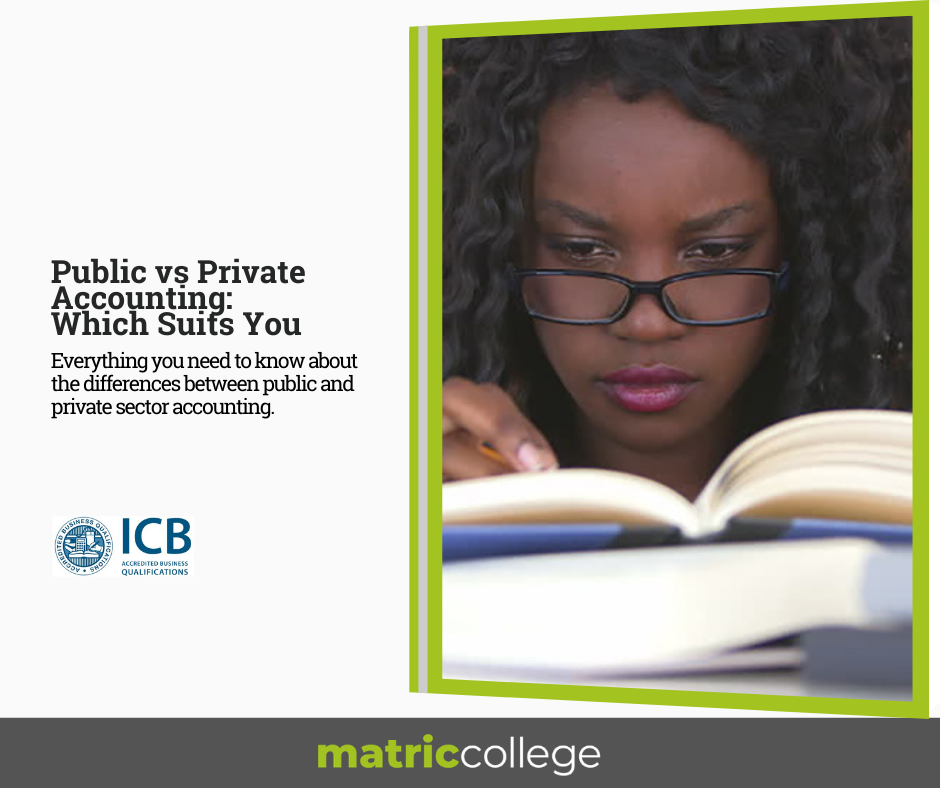Public vs Private Accounting: Which Suits You
Date Published: November 20, 2020

So you are a number cruncher who enjoys finance, taxes and all things accounting, but which field should you go into?
As a potential accountant, you could either go into public accounting or private accounting and it is rather important to know the differences before you commit.
Here is everything you need to know about the differences between public and private sector accounting.
What is Public Accounting
Public accounting is the preparation of financial statements, budgets and other material that need to be disclosed to the public. Public Accountants work on an outside perspective by verifying financial documents and reports.
Responsibilities
The responsibilities of a public accountant include:
- Ensuring that financial documentation is correct before it is released to the public
- Testing if the financial information of firms is correct
- Focus on their chosen specialty
- Tax
- Auditing
- Forensic accounting
- Consulting
Work Environment
Tax season is a very busy time of year for public accountants, so you can expect this period to be rather stressful and demanding. Public accountants do not work for a single firm, rather they will be required to travel quite a bit to wherever their clients may be located.
Their office space is often determined by where their client will have space for them.
As a public accountant, you will be on strict deadlines that could potentially lead to rather long workdays. Both fields of accounting could potentially require you to work long hours under varying strains of pressure.
Pro’s
Here are a few pros that come with working as a public sector accountant:
- Career progression is more likely to come sooner
- You can specialise in a chosen field
- You will get a great deal of exposure with clients and parts of the industry
Con’s
Here are some of the cons that come with working as a public accountant:
- A pressurized environment with strict deadlines
- Long working hours that may include weekends
- Lots of travelling is involved
What is Private Accounting
Private accounting will deal with the financial aspects of a single company. Private accountants are then usually audited by external, public accountants.
Their work consists of formulating financial reports for the internal managers of the company for which they work.
Responsibilities
These are the responsibilities of a private accountant:
- Evaluation of fiscal performance
- Plan company budgets
- Management reporting
- Account reconciliations
- Journal entries
Work Environment
Since private accountants work for a single company, they can conform to the set working hours of their company. This means rarely any overtime and a set working schedule.
Working for a sole company also means no extra travel, which is required by public accountants. A private accountant pretty much fits in as an ordinary office job.
Pro’s
Here are a few pros that come with being a private accountant:
- A less stressful working environment
- Steady working hours
Con’s
Being a private accountant comes with some cons, here they are:
- No variety of job responsibilities
- Slower career progression
- Fewer opportunities to specialise
Studying
Whether you choose private or public accounting, Matric College offers both. For more information about the ICB accounting courses offered by Matric College, click here.
Or call us on 012 762 7100 and speak to one of our course experts.
Author: Andrea Frisby
